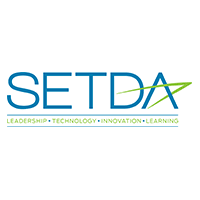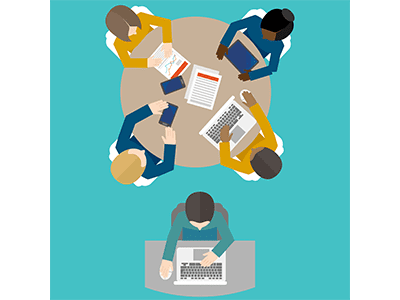SETDA to Host Leveraging Title IIA Community on edWeb

SETDA will kick off their sponsorship with the edWebinar, Moving from Lemon to Luxury: Navigating Title II, Part A in 2019, on May 23rd at 4 pm Eastern Time, featuring Christine Fox, Deputy Executive Director of SETDA, and Carly Covic Ambler, Program Manager, Title II, Part A at the Georgia Department of Education. Christine and Carly will examine the purpose and possibilities of Title II, Part A for states and districts across the country. They will also showcase how the Georgia Department of Education leverages Title IIA and further discuss how technology is leveraged to support professional learning across the state.
The Professional Learning for Effective Practice: Leveraging Title IIA community is open to any educator or provider interested in sharing or learning more about Title IIA implementation or high-quality, evidence-based professional learning practices. The community will be hosting a series of edWebinars where educators and experts can share best practices and innovative ideas in real time. All programs are recorded and archived in the community for viewing at any time. Members of the community earn CE certificates for attending or viewing any of the community’s programs, and can join in online discussions to share additional ideas and resources on an ongoing basis.
“This Title IIA community provides leaders throughout the country the opportunity to collaborate, support, and learn about research-based best practices for educators in classrooms, which will ultimately support schools and students to achieve. As a State Title IIA Partner in the Title IIA Collaborative since December 2015, I can say that this working group has been instrumental in Idaho’s transition to the Every Student Succeeds Act and this new community will be just as beneficial,” said Teresa A. Burgess, Title IIA Coordinator at the Idaho State Department of Education.
“The new online community is the first of its kind to support both states and districts leaders nationwide,” shared Cecilia Miller, Education Specialist, Teacher Education and Certification at the Alaska Department of Education & Early Development. “It is an excellent opportunity for all educators to learn more about Title II, Part A under ESSA and best practices for professional learning that support student achievement.”
“One of the greatest advantages for our SETDA state members is that they understand what it takes for state leaders to improve education through technology policy and practice, collaboration, resources, and voice,” commented SETDA Executive Director, Candice Dodson. “Now our new Title IIA Online Community provides the same opportunity for state and district Title IIA leaders.”
Lisa Schmucki, the founder and CEO of edWeb.net, commented, “We see every day how important it is to provide high-quality professional learning for the effective use of edtech, so we are especially delighted to host this new community on edWeb for SETDA on the topic of Title IIA funding and examples of the effective use of those funds.”
Educators are invited to join the free professional learning community, Professional Learning for Effective Practice: Leveraging Title IIA, and are invited to register for the upcoming edWebinar, Moving from Lemon to Luxury: Navigating Title II, Part A in 2019.
Thank you to the Bill and Melinda Gates Foundation for their support of this work.



Comments are closed.